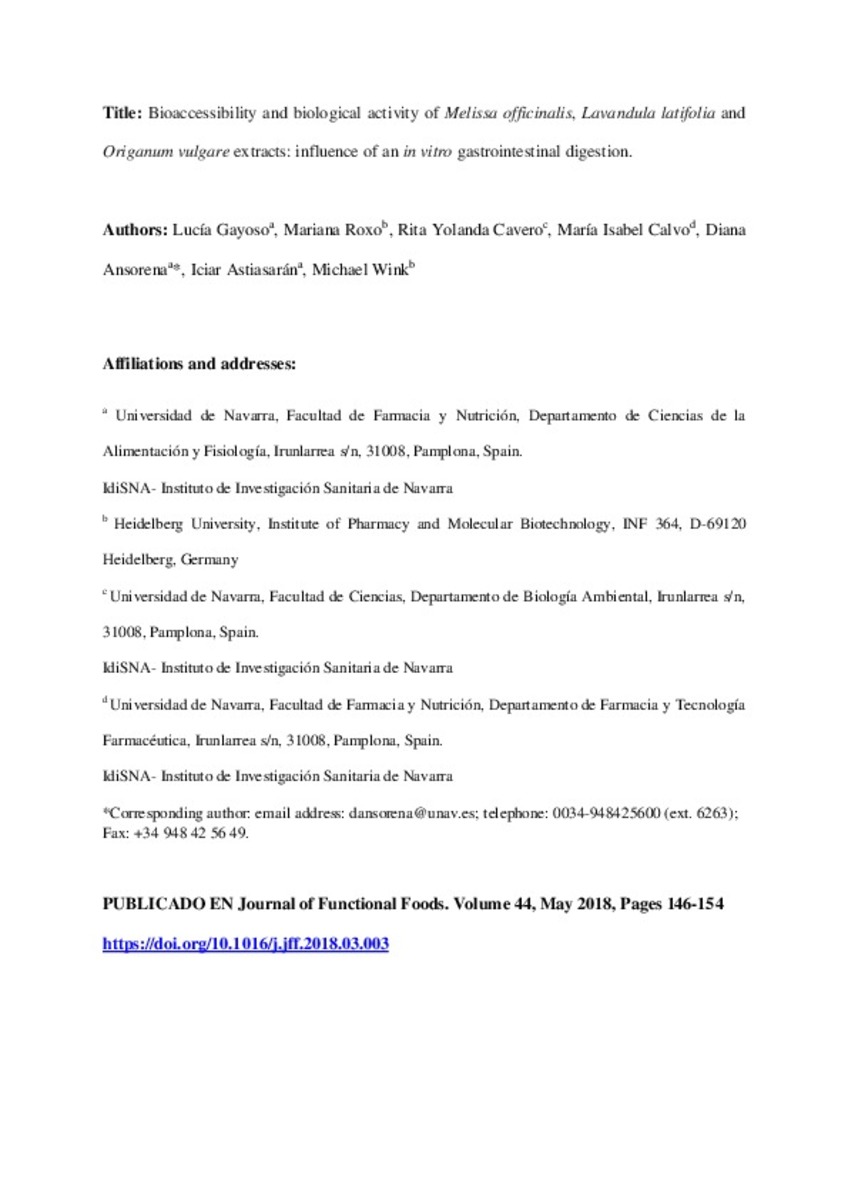Bioaccessibility and biological activity of Melissa officinalis, Lavandula latifolia and Origanum vulgare extracts: influence of an in vitro gastrointestinal digestion
Keywords:
Polyphenols
Caenorhabditis elegans
Antioxidants
Lemon balm
Oregano
Lavender
Plant extract
Citation:
Gayoso, L. (Lucía); Roxo, M. (Mariana); Cavero, R.Y. (Rita Yolanda); et al. "Bioaccessibility and biological activity of Melissa officinalis, Lavandula latifolia and Origanum vulgare extracts: influence of an in vitro gastrointestinal digestion". . 44, 2018, 146 - 154
Statistics and impact
0 citas en

Items in Dadun are protected by copyright, with all rights reserved, unless otherwise indicated.











